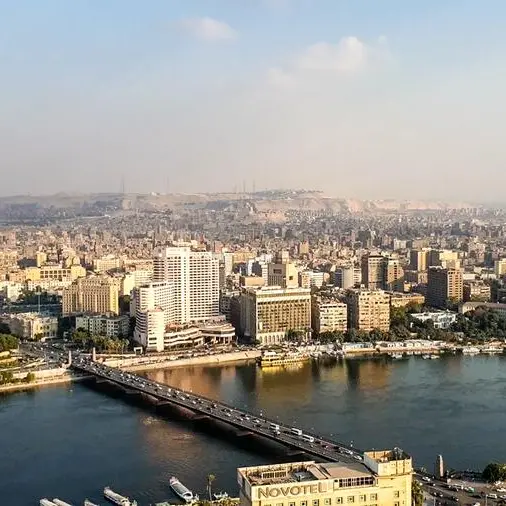PHOTO
* New proposed law stirs tensions over past
* Political parties vow to block draft law
* Gov't sees financial benefits for economy
By Tarek Amara
TUNIS, Sept 2 (Reuters) - A proposed law in Tunisia that would clear businessmen accused of corruption under former President Zine El Abidine Ben Ali in exchange for their ill-gotten wealth is causing friction, but the government says it will boost a flagging economy.
The bill would halt prosecutions of former officials and businessmen accused of corruption during the era of former President Zine El Abidine Ben Ali, if they reveal their stolen wealth to a new committee.
Their frozen funds would then be injected into Tunisia's ailing economy. One minister has said the government hopes to recover at least five billion dollars this way.
But when President Beji Caid Essebsi, a former Ben Ali official himself, sent the new economic reconciliation bill to parliament last week, it came under fire immediately.
Critics say the proposal white-washes the corruption of the past and will allow the return of elites who benefited from Ben Ali's autocratic rule while ordinary Tunisians were held back and muzzled.
On Tuesday, dozens protested against the bill in Tunis under the slogan "We will not forgive". Police forcibly prevented the march from going to the central Habib Bourguiba Avenue, a symbolic protest site, and briefly detained a number of protesters.
RELATIVE CALM
Tensions over the bill has broken a relative calm that Tunisia has enjoyed since last year's elections were won by secular party Nidaa Tounes, which includes several former officials from Ben Ali's regime.
Since its 2011 revolution ousted Ben Ali and sparked the Arab Spring revolts, Tunisia managed to build a compromise between an Islamist party and other opposition figures and former Ben Ali officials.
That consensus has allowed a return to stability, but the new law threatens to open up old wounds and divisions about the role of former Ben Ali officials in the new Tunisia.
While Nidaa Tounes's coalition partner, the Islamist party Ennahda, has been vague on its final position on the law, most other parties have vowed to oppose it in parliament.
"This project will hurt transitional justice and the political transition," Khaled Krichi, a member of a truth and dignity commission set up in 2013 to work toward reconciliation.
International corruption watchdog Transparency International has urged parliament to reject the bill and Tunisia's powerful UGTT trade union, once a key political arbitrator, has said it would would undermine justice and feed resentment, and asked the government to withdraw its proposal.
But Tunisia's new rulers see the bill as a creative way of injecting hundreds of millions of dollars into an economy struggling with a large deficit and a sudden slowdown after two major Islamist militant attacks hurt its tourism sector this year.
"A minority defeated in the election are opposed to this project which can send positive signals to investors at home and abroad for the start of a new chapter and ensure the rights of the state," Ridha Bel Hadj, director of the cabinet said.
But already opposition parties are beginning to pool their efforts to bring down this law.
"We are all for reconciliation, but only after the transparent accounting under transitional justice," said Popular Front leader Hamma Hammami. "We will resort to the streets and demonstrations in order to overturn this law."
(Editing by Patrick Markey and Raissa Kasolowsky) ((pat.markey@thomsonreuters.com; +21620349006; Reuters Messaging: pat.markey.thomsonreuters.com@reuters.net))
* Political parties vow to block draft law
* Gov't sees financial benefits for economy
By Tarek Amara
TUNIS, Sept 2 (Reuters) - A proposed law in Tunisia that would clear businessmen accused of corruption under former President Zine El Abidine Ben Ali in exchange for their ill-gotten wealth is causing friction, but the government says it will boost a flagging economy.
The bill would halt prosecutions of former officials and businessmen accused of corruption during the era of former President Zine El Abidine Ben Ali, if they reveal their stolen wealth to a new committee.
Their frozen funds would then be injected into Tunisia's ailing economy. One minister has said the government hopes to recover at least five billion dollars this way.
But when President Beji Caid Essebsi, a former Ben Ali official himself, sent the new economic reconciliation bill to parliament last week, it came under fire immediately.
Critics say the proposal white-washes the corruption of the past and will allow the return of elites who benefited from Ben Ali's autocratic rule while ordinary Tunisians were held back and muzzled.
On Tuesday, dozens protested against the bill in Tunis under the slogan "We will not forgive". Police forcibly prevented the march from going to the central Habib Bourguiba Avenue, a symbolic protest site, and briefly detained a number of protesters.
RELATIVE CALM
Tensions over the bill has broken a relative calm that Tunisia has enjoyed since last year's elections were won by secular party Nidaa Tounes, which includes several former officials from Ben Ali's regime.
Since its 2011 revolution ousted Ben Ali and sparked the Arab Spring revolts, Tunisia managed to build a compromise between an Islamist party and other opposition figures and former Ben Ali officials.
That consensus has allowed a return to stability, but the new law threatens to open up old wounds and divisions about the role of former Ben Ali officials in the new Tunisia.
While Nidaa Tounes's coalition partner, the Islamist party Ennahda, has been vague on its final position on the law, most other parties have vowed to oppose it in parliament.
"This project will hurt transitional justice and the political transition," Khaled Krichi, a member of a truth and dignity commission set up in 2013 to work toward reconciliation.
International corruption watchdog Transparency International has urged parliament to reject the bill and Tunisia's powerful UGTT trade union, once a key political arbitrator, has said it would would undermine justice and feed resentment, and asked the government to withdraw its proposal.
But Tunisia's new rulers see the bill as a creative way of injecting hundreds of millions of dollars into an economy struggling with a large deficit and a sudden slowdown after two major Islamist militant attacks hurt its tourism sector this year.
"A minority defeated in the election are opposed to this project which can send positive signals to investors at home and abroad for the start of a new chapter and ensure the rights of the state," Ridha Bel Hadj, director of the cabinet said.
But already opposition parties are beginning to pool their efforts to bring down this law.
"We are all for reconciliation, but only after the transparent accounting under transitional justice," said Popular Front leader Hamma Hammami. "We will resort to the streets and demonstrations in order to overturn this law."
(Editing by Patrick Markey and Raissa Kasolowsky) ((pat.markey@thomsonreuters.com; +21620349006; Reuters Messaging: pat.markey.thomsonreuters.com@reuters.net))





















